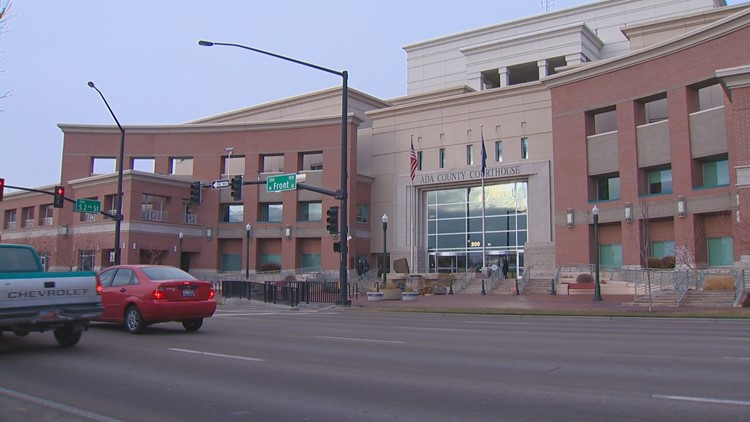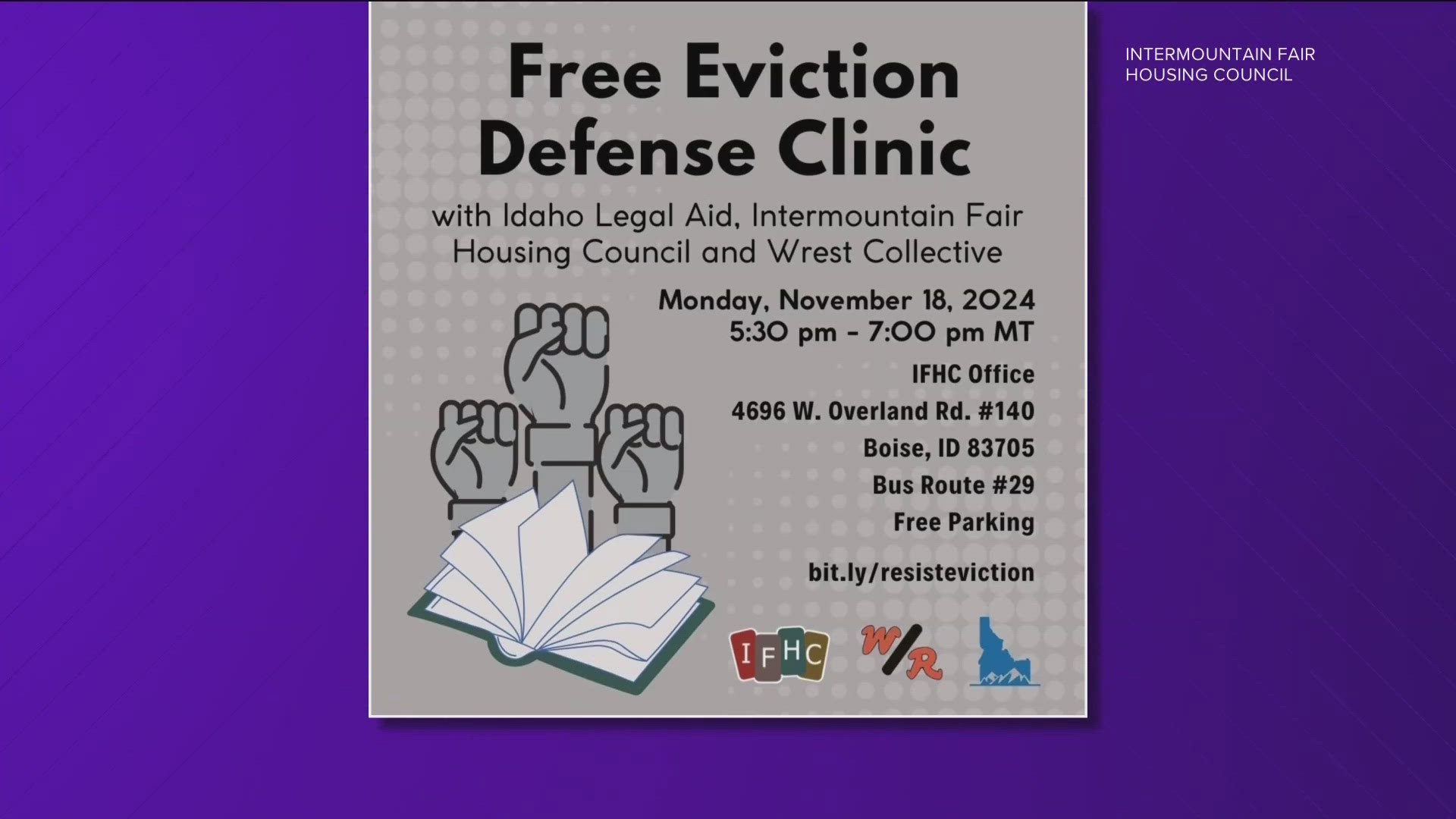BOISE, Idaho — If a government agency in Idaho violates the Idaho Public Records Law, there’s only one thing you can do: Go to court.
Under the law, that’s the “sole remedy.” You get a lawyer and file a lawsuit.
It doesn’t happen often, and it’s obvious why not: Getting a lawyer and going to court is a costly and difficult proposition. But it’s happening right now, with the Idaho Press Club suing Ada County over repeated violations of the law, citing four separate instances since February involving multiple Idaho journalists from multiple news organizations.
“Ultimately, our only recourse is to sue, and unfortunately that’s what it came to,” said Melissa Davlin, Idaho Press Club vice president and 1st Amendment Committee chair. “We’re hoping that it effects change not just within Ada County … but statewide. We’re hoping government entities pay attention to this and see that the Idaho Press Club is serious about them following the law.”
Davlin also is a reporter, host and producer at Idaho Public Television. (And full disclosure here: I’m the president of the Press Club.) The four journalists named in the suit are Davlin; Idaho Education News reporter Jennifer Swindell; and Idaho Statesman reporters Cynthia Sewell and Katy Moeller; all are Idaho Press Club members.
All filed public records requests with Ada County, and the responses they received failed to follow the law in an array of ways, according to the lawsuit.
“We have since February four examples of Ada County having unlawful responses to these public records requests that include blowing past Idaho’s allowed 10 days to respond to public records requests, overcharging for the processing of these requests, over-redaction, and citing reasons for these redactions and denials that simply don’t exist in Idaho Code,” Davlin said.
Deborah Ferguson, lead attorney for the Press Club in the case, said journalists are seeking access to government information “that is just absolutely essential to them doing their job and doing it well, so that we have a well-informed public. They need this information, and they are entitled to it.”
She added, “What I found very compelling here, when approached by the Idaho Press Club, is that this is not an isolated instance. … This is a pattern and practice. They are basically not following the Idaho Public Records Act.”
Ferguson is a former federal prosecutor, a former Idaho State Bar president, and a partner in the Boise law firm of Ferguson Durham PLLC. Among her many legal victories was leading the successful constitutional challenge to Idaho’s ban on same-sex marriage.
Davlin noted that she and other journalists met with all three Ada County commissioners, and they expressed interest in improving the county’s practices. Yet several of the violations occurred after that meeting.
A hearing in the lawsuit has been set for Oct. 2 in 4th District Court in Ada County, before Judge Deborah Bail.
Elizabeth Duncan, Ada County spokeswoman, said in a statement, “This is a public records appeal. People who request public records have a right to appeal, and we look forward to the judge weighing in on the substance of this matter.”
Numerous Idaho news organizations are contributing to the Press Club’s 1st Amendment Fund to help cover the costs of the lawsuit; they include both the Idaho Press and the Idaho Statesman, and all three major network TV stations in Boise.
HISTORICAL BACKDROP ON SCHOOL FUNDING INITIATIVE
With Reclaim Idaho last week filing a new proposed initiative to raise corporate and individual income tax rates for the wealthy to create a new dedicated funding source for Idaho’s public schools, it’s worth recalling what happened in 2006.
That year, the Idaho Education Association, the state’s largest teachers union, sponsored an initiative to add a penny to Idaho’s sales tax — raising it from 5% to 6% — with the extra money all going to the state’s public schools. It was a popular idea; teachers fanned out across the state to collect signatures, and successfully collected more than 80,000 on petitions to get the measure on the 2006 ballot by the spring of that year.
But in August of that year, then-Gov. Jim Risch called a special session of the Legislature and pushed through a different plan: It raised the sales tax from 5% to 6% with the money going to property tax relief, while eliminating the property tax levy for school operations. A state fund was set up to partially offset the impact on schools from the lost local property taxes, but there was no requirement that the new sales tax money go to schools.
By the November election, confusion reigned as to what would happen if the initiative also passed. It stated that if lawmakers already had raised the sales tax to 6%, they’d have to come up with another funding source for a comparable dedicated fund for schools. But voters wondered if they were being asked to add yet another penny to the sales tax and push it up to 7%; the initiative failed, with 45.4% in favor and 54.6% against.
The 2006 initiative would have put all the new money into a Local Public Schools Investment Fund, all of which would be spent to improve local schools. Allowable items included classroom materials; college or career-technical courses for high school students; reducing class sizes; attracting and retaining teachers; upgrading technology; adding classroom aides; supporting arts and music education; paying for maintenance; and improving student achievement.The new initiative would raise the corporate income tax rate from its current 7.4% to 8%, the same rate in effect from 1987 to 2000; and create a new top bracket in the individual income tax for people earning $250,000 or more, or married couples earning $500,000 or more, with their rate rising from the current 6.925% to 9.925%.
This article originally appeared in the Idaho Press, read more on IdahoPress.com.
More from our partner Idaho Press: 9th Circuit Court declines to weigh in on Idaho's hemp debate. For now.



